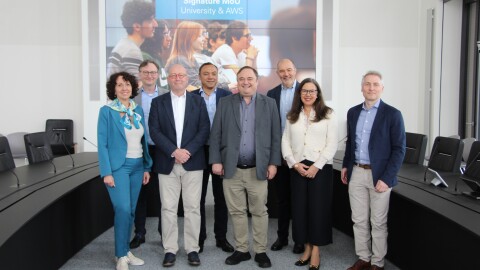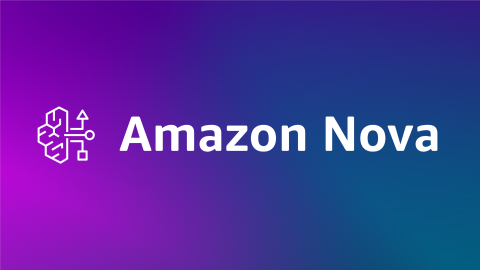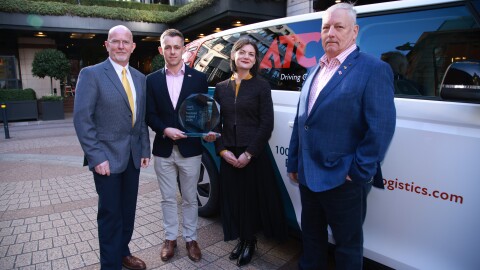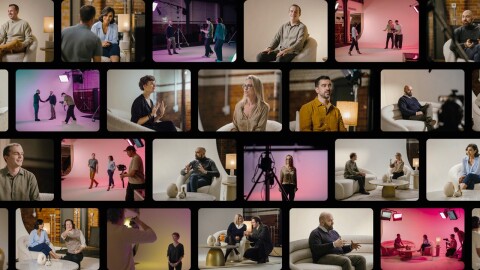Three years ago, Nicolas Pieuchot and brothers Pierre-Adrien and Christophe Menez, all from Brittany, were just young average students. “We had a strict food budget and we were always on the lookout for special offers. With the economic crisis in full swing, we probably were not the only ones experiencing financial difficulties,” Pierre-Adrien recalls.
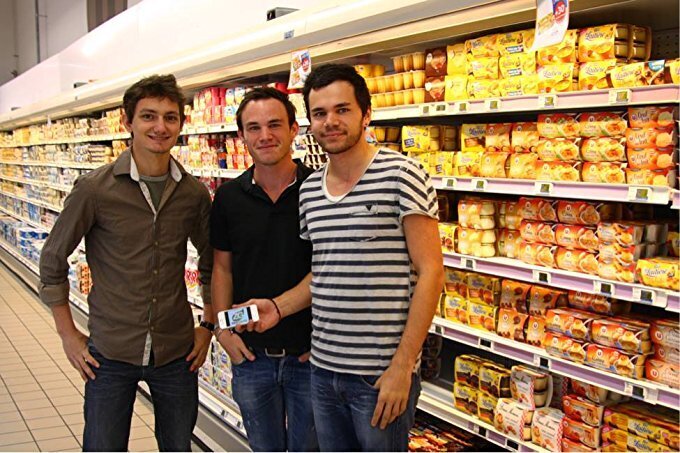
After much debate about how to manage their budget, they found a solution. “Shops throw away hundreds of thousands of tonnes of food every year, while many customers are on the lookout for special offers to help make ends meet,” explains Pierre-Adrien. “So we figured we could make savings while also helping supermarkets to reduce the amount of food that goes unsold.” Armed with this idea, the three friends abandoned their studies and created Zéro-Gâchis (“Zero Waste”), a company that aims to reduce food waste.
Benefiting consumers, supermarkets and the environment
We recently received a letter from a customer who hadn’t eaten meat for a year because he couldn’t afford it. Thanks to Zéro-Gâchis, he can now eat meat again for less than €3 a day!
Zéro-Gâchis allows large supermarkets to get rid of food approaching its expiry date by putting it on special offer. These offers appear on the Zéro-Gâchis website so that consumers can easily find them. “It benefits both the community and the environment.” For Pierre-Adrien, it’s a win-win situation for everyone. “Customers pay less for their food and supermarkets offload stock that they wouldn’t have been able to sell otherwise.”
But the gamble didn’t yield instant rewards. “We realised that entering the consumer goods market is not that simple.” So the young entrepreneurs decided to take part in the incubator programme run by the France Business School in Brest. This gave them access to the biggest supermarkets in the region. “It was a godsend! It probably would have taken us twice as long to set up the project without their help.”
After a successful first trial and the positive response from customers, the supermarkets opened their doors to the idea. “We recently received a letter from a customer who hadn’t eaten meat for a year because he couldn’t afford it. Thanks to Zéro-Gâchis, he can now eat meat again for less than €3 a day!”
Their first year’s figures highlight their success. “In 2013, we helped supermarkets reduce their food waste by 151 tonnes, while customers saved about €900,000 thanks to the discounts ranging from 30% to 70% on Zéro-Gâchis products.”
A community project using Amazon Web Services
Zéro-Gâchis now has two main communication methods – a website and an app. “We’re always looking to interact with customers. We tell them about special offers every day, but we also try to understand their expectations. so they come back and get good deals. We need a reliable website which can handle peak loads, especially at the end of the day, when people tend to do their food-shopping,” explains Nicolas, co-founder and now Technical Director of Zéro-Gâchis.
“At the very beginning, we were going to the supermarket every morning to note down barcodes, quantities and expiry dates for every product, all by hand. Nowadays, thanks to the AWS Cloud, we can avoid this tedious job, as we’ve been able to create a database which is easy to use and saves us valuable time.”
They were also quick to realise that the simplicity of AWS was the answer to their lack of resources. “We could launch our infrastructure on the Cloud in just a few clicks, without a need to make a huge investment. Having a robust yet simple platform like the one we have with Amazon Web Services allows us to focus on new projects, such as developing a scanner that supermarkets can use to list and organise products approaching their expiry dates.”
The fact that AWS is so quick to use is another key factor in the success of Zéro-Gâchis, as it means it can expand without delay. “We’ve signed up 7 stores in 18 months, and now things are speeding up. We have doubled in size in 6 months, taking us to 15 stores, and we hope to reach 50 large supermarkets by the end of the year.” The success of this project benefits us all, even the planet.


